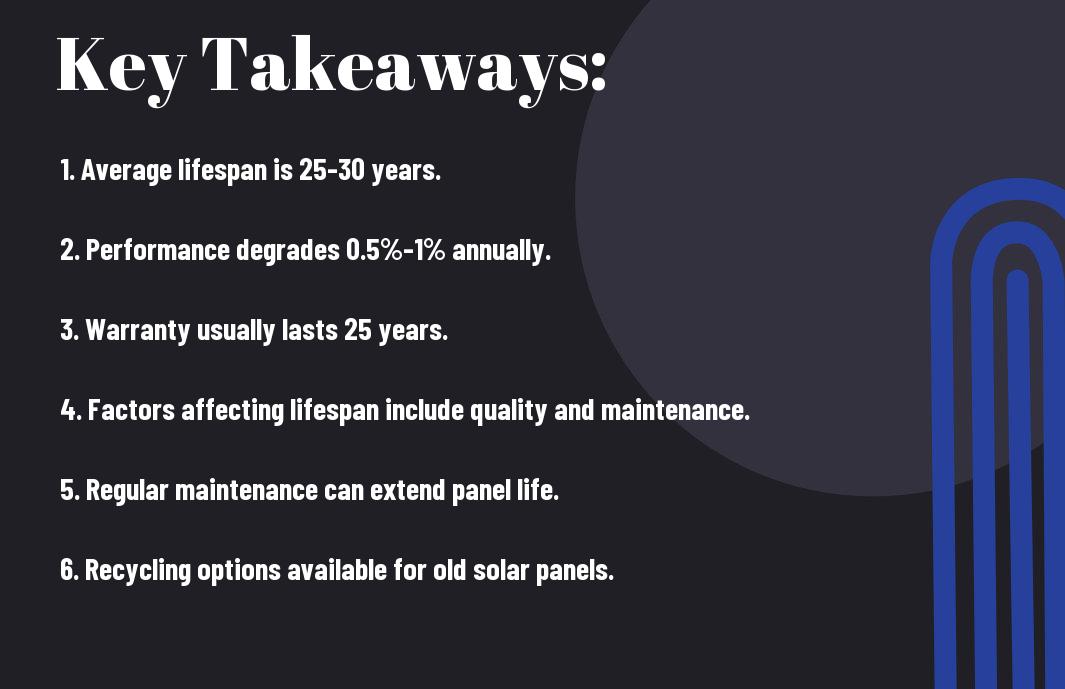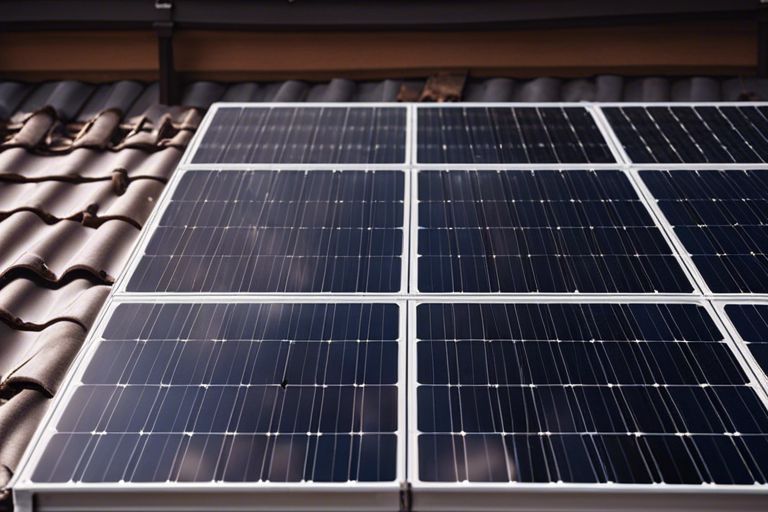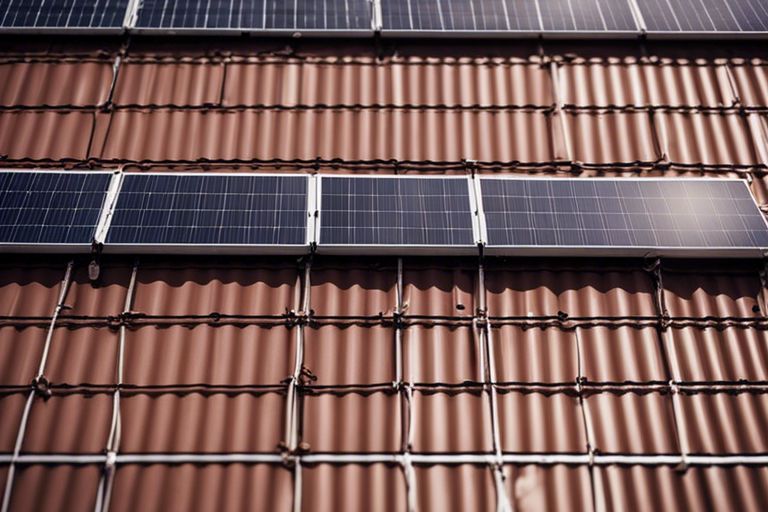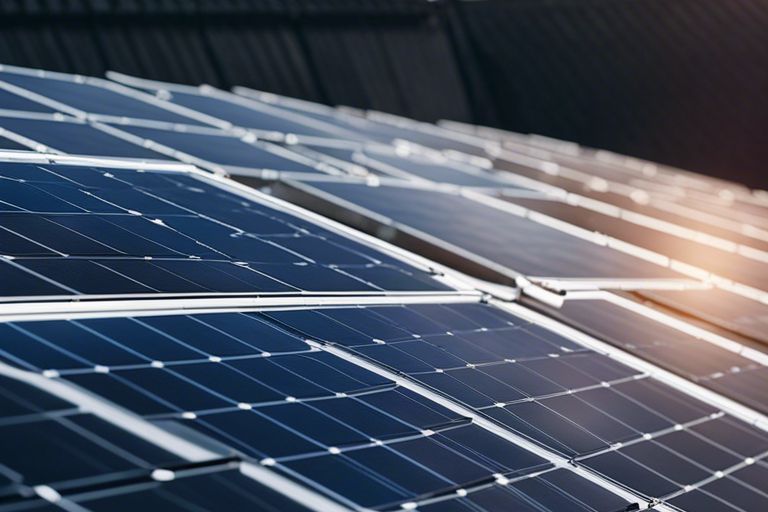Many factors contribute to the longevity of solar panels, but on average, you can expect them to last between 25 to 30 years. With proper maintenance and care, solar panels can even exceed this timeframe. Understanding the lifespan of solar panels is crucial when considering renewable energy options for your home. If you want to learn more about the end-of-life management for solar photovoltaics, you may find this End-of-Life Management for Solar Photovoltaics resource helpful.
Key Takeaways:
- Lifespan: Solar panels can last up to 25-30 years or more, with most manufacturers offering warranties that guarantee performance for at least 25 years.
- Maintenance: Proper maintenance and care can help extend the life of solar panels. Regular cleaning, monitoring performance, and ensuring a stable mounting structure are important.
- Degradation: Solar panels experience gradual degradation over time, but the rate of decline is generally slow. Most panels are expected to still operate at 80% efficiency after 25 years.

The Average Lifespan of Solar Panels
Before discussing the average lifespan of solar panels, it’s imperative to understand the factors that contribute to their durability. Solar panels are built to withstand harsh weather conditions and are typically made of sturdy materials like tempered glass and anodized aluminum frames, which protect the photovoltaic cells inside.
Industry Standards
With regards to industry standards, solar panels are designed to last for about 25 to 30 years. This means that they should continue producing electricity at a high level of efficiency during this period. However, it’s imperative to note that the actual lifespan may vary depending on environmental factors and maintenance practices.
Manufacturer Warranties
Manufacturer warranties for solar panels typically range from 20 to 25 years. This warranty ensures that the panels will operate at a certain efficiency level for the specified period. It’s crucial to check the warranty terms when purchasing solar panels, as reputable manufacturers often provide guarantees against defects and performance issues.
Manufacturer warranties also usually cover factors like power output, material defects, and durability. In case any issues arise during the warranty period, the manufacturer will often replace or repair the solar panels at no additional cost to you. This provides added peace of mind regarding the long-term performance of your solar energy system.
Factors Affecting Solar Panel Longevity
Any number of factors can impact the longevity of your solar panels. Here are some key considerations:
Environmental Conditions
One of the critical factors affecting the lifespan of your solar panels is the environmental conditions they are exposed to. Extreme temperatures, excessive humidity, snow, and hail can all take a toll on the durability of your panels over time. Regular exposure to such conditions can lead to wear and tear, reducing the efficiency and lifespan of your solar panels. Knowing the climate of your region and taking appropriate measures to protect your panels can help extend their life.
Quality of Installation
Panel installation is another crucial factor in determining how long your solar panels will last. Improper installation can result in structural issues, such as water leakage or physical damage, which can significantly impact the performance and longevity of your panels. To ensure the longevity of your solar panels, it is important to have them installed by a professional with experience and expertise in the field.
- Factors affecting the quality of installation include the type of mounting system used, the angle at which the panels are installed, and the quality of the materials used in the installation process.
Maintenance and Repair
Any negligence in maintaining and repairing your solar panels can also affect their longevity. Regular maintenance checks to clean the panels, inspect for any damages, and ensure proper functioning are crucial in preserving the lifespan of your solar panels. Additionally, timely repairs of any issues detected during maintenance can prevent further damage and extend the life of your panels.
This all underscores the importance of proactive care and attention when it comes to maintaining your solar panel system. By addressing these key factors, you can help ensure that your solar panels last as long as possible.

Degradation Rates of Solar Panels
Initial Degradation
To understand the degradation rates of solar panels, you need to know about the initial degradation that occurs when the panels are first installed. During the first few months after installation, solar panels typically experience a slight drop in efficiency, known as initial degradation. This initial drop is usually around 2-3%, and it stabilizes after this period.
Long-term Degradation
Now, let’s talk about long-term degradation of solar panels. Over time, solar panels will continue to degrade, losing efficiency gradually each year. On average, solar panels degrade at a rate of around 0.5% per year. This means that after 20 years, your solar panels may still be operating at around 90% of their original efficiency.
Panels aging gracefully, like fine wine, have proven to be quite durable, with many manufacturers providing warranties for 20-25 years. This shows the confidence in the longevity of solar panels and underscores their reliability as a long-term energy solution for your home or business.
Types of Solar Panels and Their Lifespan
Your choice of solar panels can affect the lifespan and efficiency of your solar energy system. Understanding the different types of solar panels available can help you make an informed decision. Here are some common types of solar panels and their lifespan:
| Type of Solar Panel | Lifespan |
|---|---|
| Monocrystalline Silicon Solar Panels | 25-30 years |
| Polycrystalline Silicon Solar Panels | 20-25 years |
| Thin-Film Solar Panels | 10-20 years |
Monocrystalline Silicon Solar Panels
Panels made from monocrystalline silicon are known for their high efficiency and longevity. These panels typically have a lifespan of 25 to 30 years. The manufacturing process involves cutting silicon wafers from a single crystal, making them highly efficient at converting sunlight into electricity.
Monocrystalline silicon panels are a popular choice for homeowners looking for a reliable and durable solar panel option. With proper maintenance, these panels can continue to generate clean energy for decades.
Polycrystalline Silicon Solar Panels
One of the most common types of solar panels, polycrystalline silicon panels are known for their affordability and moderate efficiency. These panels have a lifespan of around 20 to 25 years. Polycrystalline silicon panels are made by melting raw silicon and pouring it into molds to create wafers.
Thin-Film Solar Panels
An alternative to traditional silicon panels, thin-film solar panels are lightweight and flexible. However, they have a shorter lifespan of 10 to 20 years compared to crystalline silicon panels. Thin-film panels are made by depositing thin layers of photovoltaic materials onto a substrate, making them versatile for different applications.
After considering the type of solar panel that best fits your needs, you can ensure the longevity of your solar energy system by investing in quality panels and conducting regular maintenance.
Extending the Life of Your Solar Panels
Regular Cleaning
Unlike many other investments, solar panels require minimal maintenance to ensure they last for many years. Any accumulation of dirt, dust, or debris on the surface of your solar panels can reduce their efficiency. Regular cleaning with a soft brush, mild detergent, and water is all it takes to maintain optimal performance.
Monitoring Performance
Monitoring the performance of your solar panels is important to ensure they are functioning at their best. With advancements in technology, you can easily track the energy production of your solar panels using monitoring systems. By keeping an eye on their performance, you can quickly identify any issues and address them promptly to extend the lifespan of your solar panels.
Monitoring your solar panels’ performance allows you to detect any drops in efficiency or malfunctions early on. By analyzing the data provided by monitoring systems, you can address any issues promptly, ensuring your solar panels continue to generate clean energy efficiently.
Upgrading Inverters
With the rapid pace of technological advancements in the solar industry, upgrading your inverters can help improve the efficiency and lifespan of your solar panels. Inverters are important components that convert the direct current (DC) generated by the solar panels into usable alternating current (AC) for your home. Upgrading to more efficient inverters can optimize energy production and prolong the life of your solar panels.
Regularly upgrading your inverters to the latest models can significantly improve the performance and efficiency of your solar panel system. By keeping up with advancements in inverter technology, you can maximize the energy output of your solar panels and increase their longevity.

Signs of Solar Panel Degradation
Despite their longevity, solar panels can degrade over time. There are several signs to look out for to ensure your solar panels are functioning optimally.
Reduced Energy Output
Any decrease in energy output from your solar panels could be a sign of degradation. If you notice a drop in the amount of electricity generated compared to when the panels were newly installed, it could indicate that the panels are not working as efficiently.
Visual Inspection
Energy: Regular visual inspections of your solar panels can help you identify any signs of degradation. Look for cracks, discoloration, or warping on the panels, as these can all be indicators that the panels are degrading.
It’s important to clean your solar panels regularly to ensure maximum efficiency. Dust, dirt, or bird droppings can block sunlight from reaching the panels, affecting their performance over time.
Inverter Alerts
Panel: Keep an eye on the inverter alerts from your solar panel system. Inverters are crucial components that convert the DC power generated by the solar panels into usable AC power for your home. If you receive alerts indicating issues with the inverter, it could be a sign of degradation in your solar panel system.
With timely maintenance and regular inspections, you can address any signs of degradation in your solar panels promptly, ensuring they continue to generate clean energy for years to come.
Conclusion
Summing up, solar panels have a lifespan of around 25-30 years, but their efficiency may decrease slightly over time. Regular maintenance and cleaning can help prolong their lifespan and ensure optimal performance. Investing in high-quality solar panels and having them installed by professionals can also make a difference in how long they last and how well they work.
FAQ
Q: How long do solar panels typically last?
A: Solar panels are designed to last for approximately 25-30 years. However, most manufacturers offer performance warranties for 25 years, ensuring that solar panels will still operate at a certain level of efficiency after this period.
Q: What factors can affect the lifespan of solar panels?
A: Several factors can impact the longevity of solar panels, including the quality of the panels, installation practices, weather conditions, maintenance, and the overall environment where the panels are installed. Proper maintenance and care can help extend the life of solar panels.
Q: What happens at the end of a solar panel’s lifespan?
A: At the end of a solar panel’s lifespan, the panels may still continue to generate electricity but at a reduced efficiency level. In some cases, the panels can be recycled to reclaim valuable materials such as silicon and glass. It’s important to check with local recycling facilities to ensure proper disposal of solar panels.
